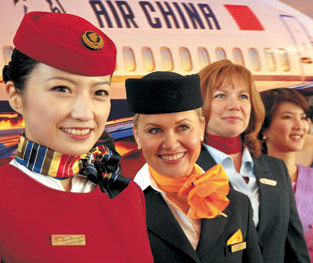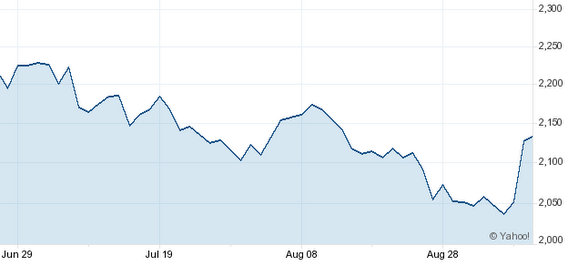
Translated by Andrew Vanburen from a Chinese-language piece in Sinafinance
THE FIRST HALF was not kind to China’s listed carriers on the losses side and more turbulence is in the cards for the current half.
And if that weren’t enough to keep sentiment in listed carriers grounded for the time being, some of China’s biggest names in the aviation sector are also predicting major forex losses for the current half.
China Southern Airlines (SHA: 600029; HK: 1055) says it will lose some 1.6 billion yuan between July and December.
Meanwhile, Air China (SHA: 601111; HK: 753) expects to shed around 700 million yuan this half.
“It’s anticipated that the Chinese yuan currency will depreciate by around another 1% or so by the end of the year. This brings foreign currency losses to Air China of around 600-700 million yuan and severely limits the carrier’s ability to turn a profit,” said an industry insider.
Airlines spend an inordinate amount of their budgets on fuel and new aircraft, all of which typically are denominated in US dollars.
Therefore, in order to spread risk, carriers typically hold vast amounts of different global basket currencies to better hedge themselves.
However, the problem with this is the foreign currency losses that can occur when even modest changes take place with one currency’s respective value versus another.

Airlines, therefore, are some of the most vulnerable plays listed on Greater China bourses to currency fluctuations.
In the first half of this year, Mainland China’s four biggest carriers all saw bottom line decreases, with their collective net profits plummeting over 50% on a year-on-year basis.
Another aviation sector watcher said that foreign currency losses are the biggest drag on bottom lines for listed carriers, and will continue to be so into the foreseeable future.
This phenomenon caused China’s “Big Four” to suffer first half foreign currency losses totaling over one billion yuan.
As high as that seems, it’s still a 113% improvement on the year-earlier situation.
But the current half looks to be a lot more damaging, given the just-released forex loss predictions for China Southern and Air China.
Most of the airlines hold most of their external debt in US dollars.
Over the past few years – especially since China “officially” loosened the “unofficial” peg to the greenback in 2005 – carriers practicing this strategy did very well for themselves.
But this year, for the first time in recent history, the gradual rise of China’s renminbi has hit an extended snag.
In short, China’s big four passenger carriers don’t have a contingency plan in place for a long-term depreciating yuan.
Add to that the renewed fuel price volatility and it looks like China’s listed airlines are in for more turbulence this year.
See also:
MING FAI Gets ‘Buy’ On Retail; TIANYI ‘Positive’ On Strong Earnings
MING FAI: Hotel & Airline Supplier Has Standout 1H, Yet Shares At 52-Wk Low
